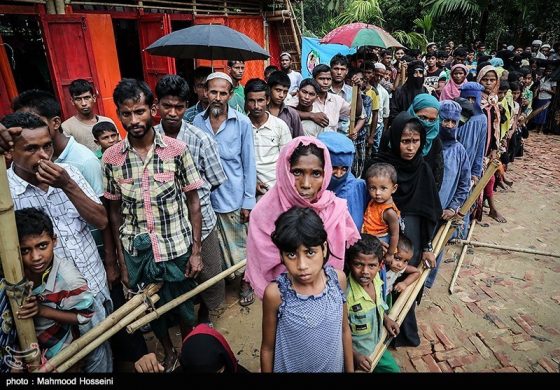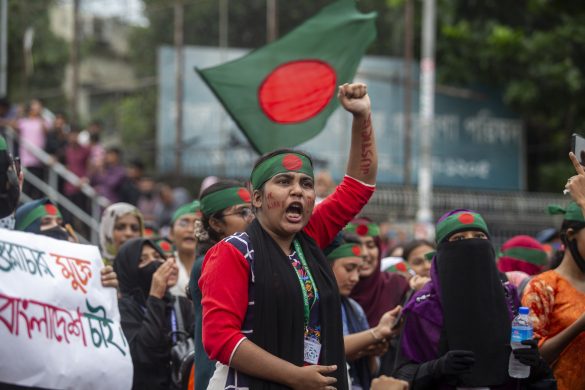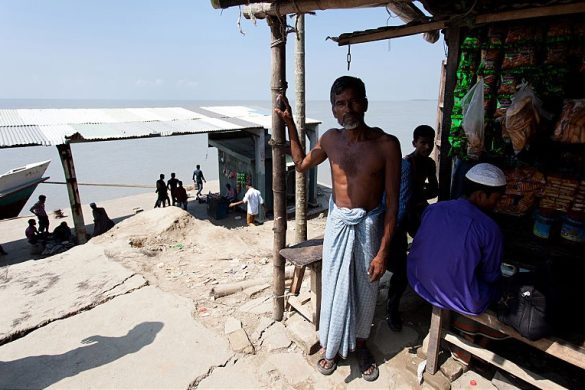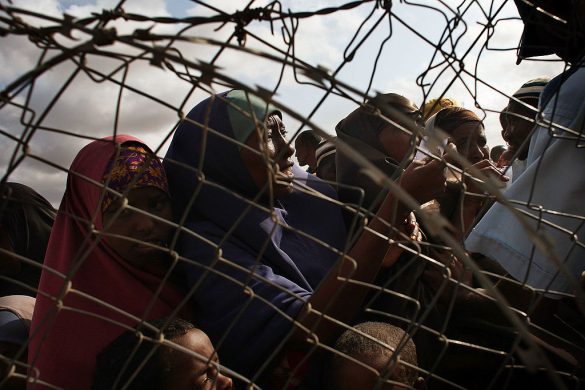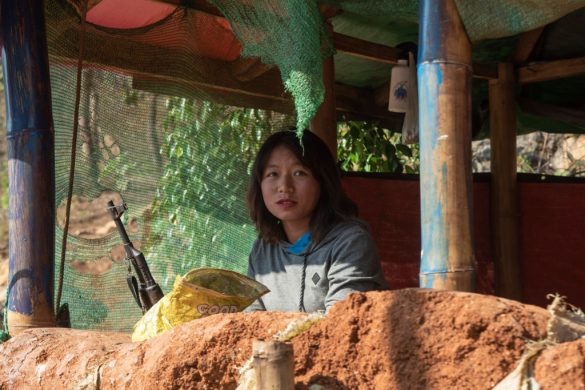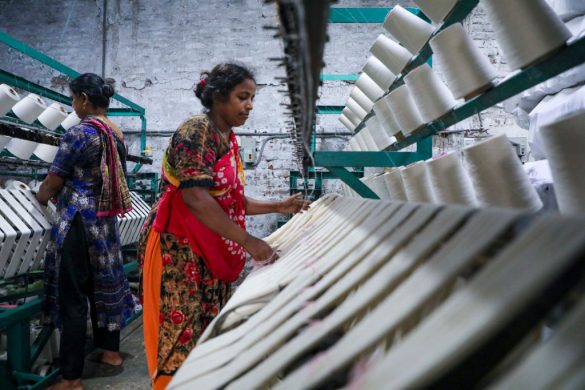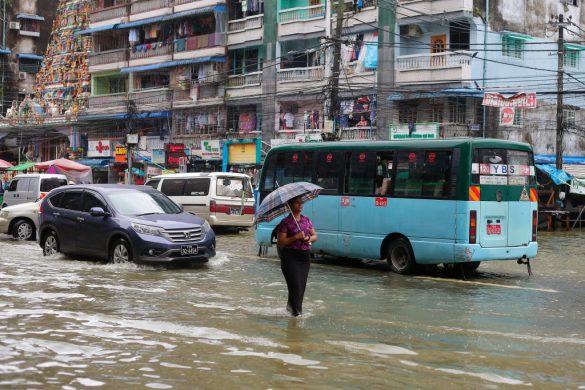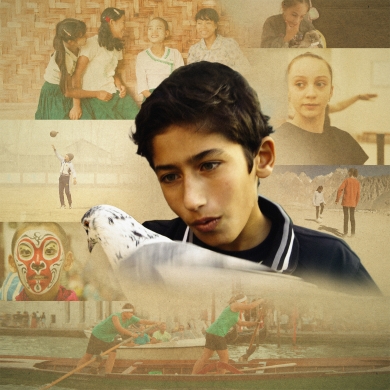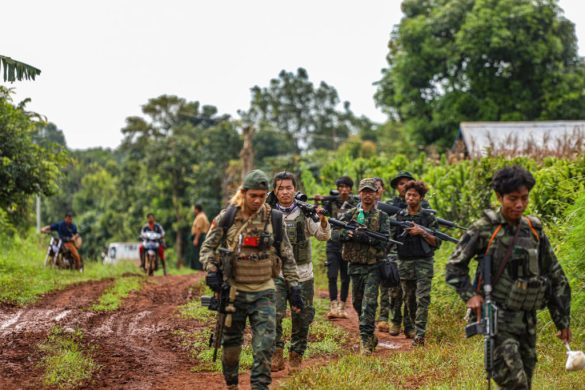That’s why Dignity Kits are a crucial component of humanitarian aid – packages with simple yet vital items like clean underwear, soap, and, yes, sanitary napkins. As well, they contain a flashlight and a whistle, so that when women and girls need to use the lavatory at night or otherwise navigate the darkness they can more easily summon help if threatened or attacked.
”Homes of peace”
Then, for all survivors of crisis, and especially for those traumatized by sexual violence and other atrocities, there is the need for Women Friendly Spaces to create safe zones for health and healing.
These spaces – which Rohingya refugees call “shanti khana” or “homes of peace” – have given all women a place to talk to caseworkers, talk with other women, or just have some quiet time on their own. Hundreds of women have been using these spaces every single day.
The initial cadres of mental health and psychosocial experts deployed to the refugee camps have by now trained hundreds of caseworkers from Bangladesh and within the Rohingya community itself.
The system that was put in place early means that thousands of women have already begun to recover from trauma, and can look to the future and face its challenges better.
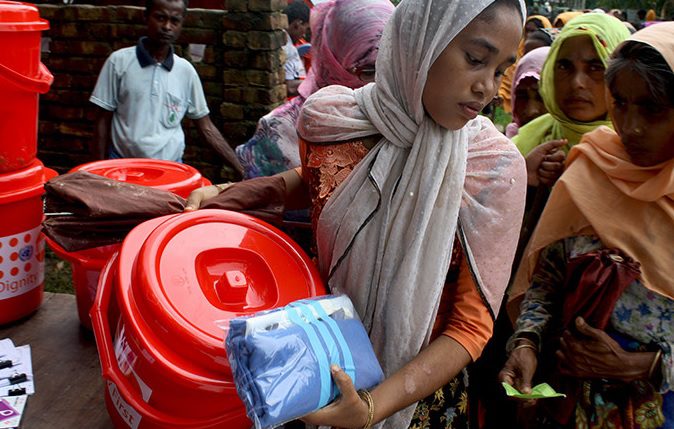
Women receiving UNFPA Dignity Kits.
Foto: UNFPA Bangladesh.
Safe Birth Even Here
Of the 700,000 people who have arrived in Bangladesh since last August, almost 30,000 have been pregnant women. An entire generation has already been born in the world’s largest refugee camp.
Dozens of trained midwives have made sure both mothers and babies would not just survive, but thrive in clean, safe, private facilities. Midwives are among the most vital frontline workers, and they are supported by doctors, obstetricians and gynaecologists who perform emergency caesarians and advise on complicated cases.
to go into their communities, identify pregnant women and counsel them and their families on the benefits of giving birth with a qualified midwife.
These volunteers are already respected leaders in their communities, and are responsible for saving so many lives by getting women to the clinics. Volunteer programmes, where volunteers receive an allowance for their work, are being rapidly scaled up to meet women’s needs and to save lives of mothers and babies alike.
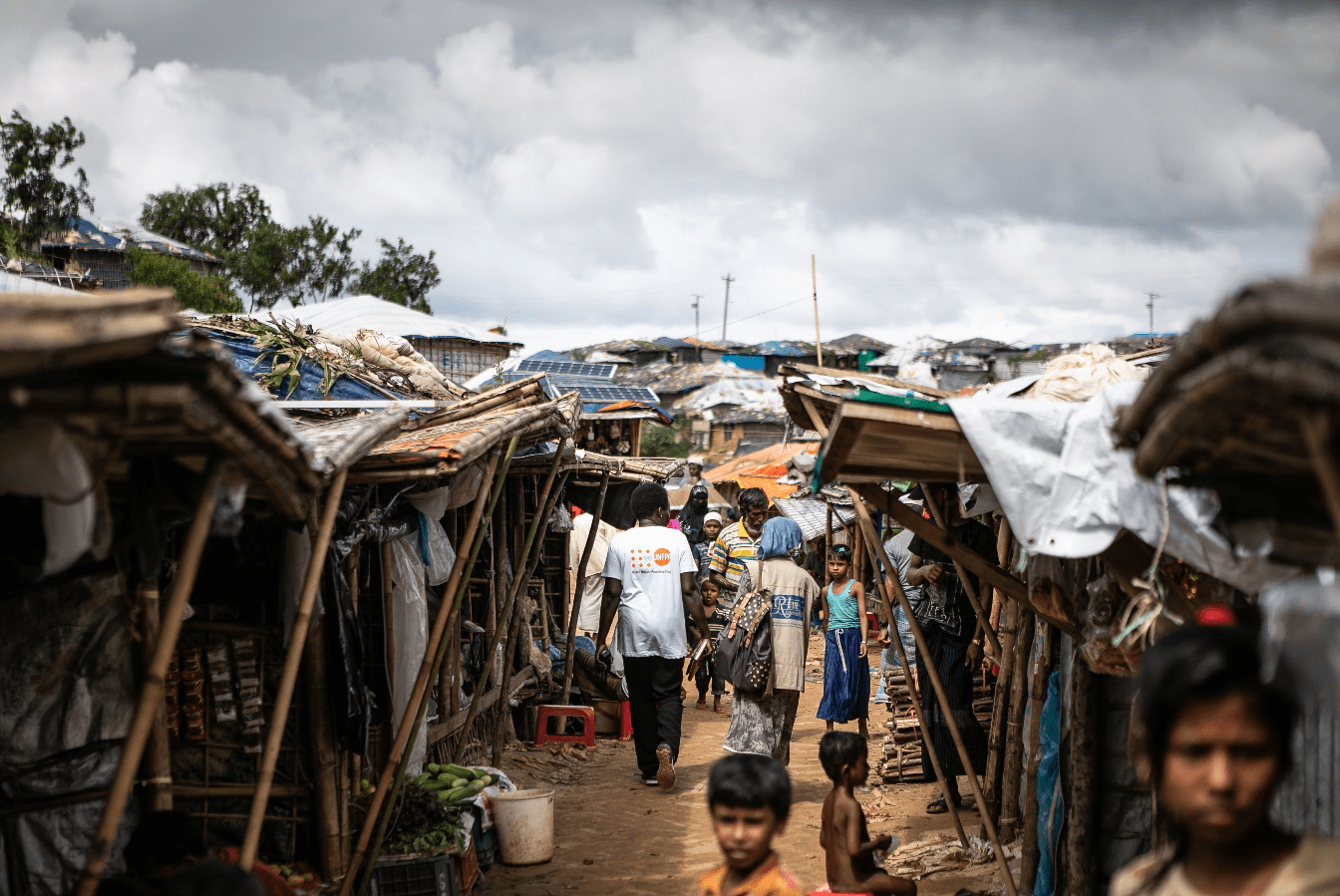
Bakoko, an experienced midwife, visits the camps every day, mentors newly educated local midwives, examines pregnant women and support new mothers.
Foto: UNFPA Bangladesh.
As a backup measure, efforts are made to ensure that all pregnant women receive a Clean Delivery Kit, so that if they are unable to get to a clinic or otherwise decide to give birth at home, they will have clean sheets, towels and even a sterilized blade to cut the umbilical cord.
When new babies arrive, mothers should receive a Mama Kit, which includes cotton baby clothes, a blanket, nappies and hygiene products for the mother. The arrival of a new baby should be a celebration, and not a financial burden.
Choice, not chance
Community volunteers, health workers, and psychosocial experts ideally work with men as well to overcome long-held patriarchal attitudes that prevent their wives and daughters from exercising their rights.
All people – no matter what their circumstances – have a right to choose if and when to have children, and how many. Informed choice is complemented by a full range of contraception options to women in the camps as well as in the host community, including for new mothers. Each month more and more Rohingya women are choosing to take contraceptive measures, and more and more men are supporting them in their choice.
In the midst of this, the results of reproductive health and gender-based violence programmes are sometimes less immediate or tangible than other programmes in the wider humanitarian response. But it has been so gratifying to see the support donor governments have provided for these issues, putting women and girls at the forefront of this response.
Åsa Torkelsson is Representative of the United Nations Population Fund (UNFPA) in Bangladesh.
To learn more about UNFPA’s response to the crisis, and to support lifesaving interventions for women and girls, including Dignity Kits, Women Friendly Spaces and safe pregnancy and childbirth services, please visit www.unfpa.org/Rohingya and http://bangladesh.unfpa.org

